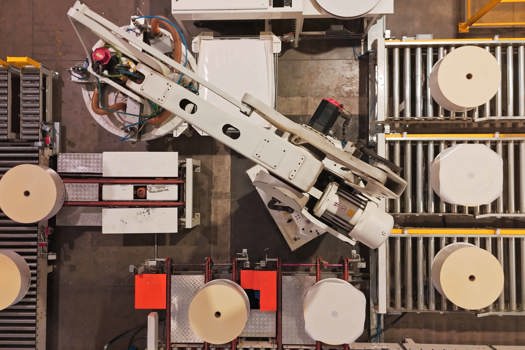The Data & Marketing Association (DMA UK) said that of those SMEs who do plan to innovate with AI within the next 12 months, 40% believe current regulation does not offer sufficient safeguards for its development. Just under a fifth (17%) said they plan to innovate and believe current regulation is sufficient.
These findings come from the DMA UK’s new report, ‘Data Horizons: How UK SMEs and Consumers View the Future of Privacy Regulation’, which was published just as the UK AI Safety Summit was held last week.
The UK government has been urged by industry to grasp the opportunity to become a global pioneer in responsible AI innovation and over three quarters (76%) of SME owners believe the government should introduce regulation to mitigate the ethical risks of AI.
For SMEs and consumers, the main perceived benefit of AI technologies is that it will improve training and development, according to the DMA. Over a quarter (28%) of SME owners and nearly a fifth (17%) of consumers stated this.
The main concern consumers have around AI is the reduction of jobs, with more than a third stating this (37%); followed by privacy and information (34%), societal detriment (27%), and national security (24%). A fifth (20%) said they have no concerns around AI.
Rachel Aldighieri, MD of the DMA, said: “The inaugural Global AI Summit has laid the foundations for the UK to become a pioneer in how to drive responsible AI innovation.
“To achieve this, industry leaders and government must first work together to build industry ethical frameworks founded on core values such as accountability, transparency, and public safety and trust, to ensure AI’s development remains a force for good and businesses become more confident to innovate in this space.
“The DMA supports the UK government’s proposals to build on existing regulatory expertise and legislation, to establish a set of core principles to guide regulators across their respective sectors.
“Regulation will always have an important role to play to deter rogue organisations, but it must supplement an industry-led governance initiative.
“A stringent regulation-first approach could stifle innovation and show mistrust to businesses when most have genuine intentions for AI’s development — they just need more direction, support, and structure from industry leaders and regulators to help them to use AI effectively and responsibly.”
A separate study from global digital transformation consultancy Kin + Carta found that 94% of business leaders admit to “tech anxiety” within their organisation’s senior leadership as the pace of digital and technological change accelerates.
The findings, collated into the ‘2024 Leadership Priorities in Tech’ report found that while the top source of that anxiety is cyber security (cited by 24% of respondents), there were also concerns over AI and machine learning (19%), and anxieties about sustainability strategy and tracking (17%).
But investment in AI and machine learning is seen as the number one priority among global companies, the study found, with 15% of leaders saying they plan to invest in it this year, with cyber security second on 12%.
Ricoh Europe has found that while the use of AI tools in the workplace is rapidly increasing, many organisations are lagging in providing guidance and training in the use of these technologies.
A poll from the manufacturer, conducted by Opinium, revealed a gap between workers’ use of emerging technologies and organisations’ efforts to support and manage that usage.
The data found that 33% of employees in the UK and Ireland use AI tools, such as Chat GPT, with 10% of these respondents using it once or more a day. However, the adoption of AI is outpacing employers’ implementation of formal policies and procedures. Only 12% of companies have offered training on how to utilise AI tools.
Only 14% of businesses, meanwhile, have implemented risk management measures to ensure the safe and transparent use of AI, despite associated copyright and privacy risks.
Glenn Griggs, CEO at Ricoh UK, said: “The rapid pace at which AI technologies are emerging, means organisations must bridge the governance gap to unleash the full potential of automation. To produce the most value for both employees and organisations, the adoption of targeted training and guidance can make the most of productivity gains and avoid potential pitfalls.
“As the benefits of automation tools evolve, collaboration, clear guidelines and robust employee training are the keys to a smarter future of work. Getting it right stands to benefit the individual, and the business as a whole – with AI and automation, people can free up time for more creative and strategic work.”
Packaging is thought to be one of the industry’s biggest sectors that could be impacted by AI, particularly generative AI tools.
Business intelligence service Smithers said generative AI will significantly lower the barriers for creativity for packaging design and its contents, and the organisation has just published a new white paper, ‘5 Ways Generative AI Will Transform Packaging by 2030’, that explores the potential in the sector.
Its key findings were that dynamic design will help in getting customised products to market faster; analysing performance and usage will unlock more innovation; supply chain optimisation will enable faster speeds and greater complexity; conversational engines will be an early transformational change; and enhanced R&D will see industry-wide collaborations forming.
AI could ultimately contribute up to $15.7tn (£12.7tn) to the global economy in 2030, according to PwC, and its productivity advantages are likely to benefit every industry.
A recent Printweek briefing delved further into the topic and looked at AI’s huge potential for print.








